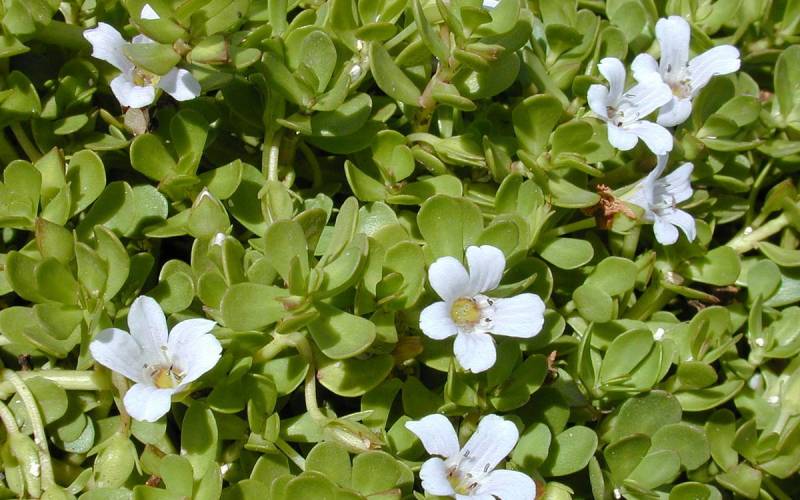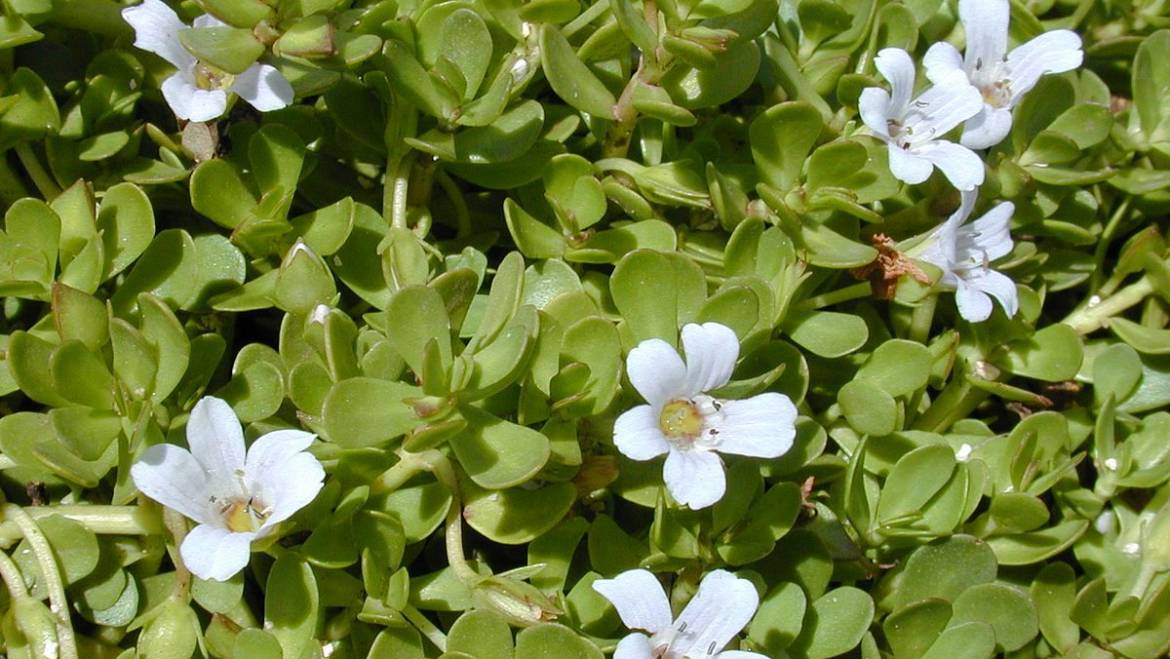Bacopa

Bacopa
Bacopa monnieri is a small herb with oblong leaves containing light purple flowers. It is commonly known as Brahmi, which is a creeping plant found in marshy areas in India. It belongs to the family Scrophulariaceae. This plant has been used for over 3000 years as an Indian Ayurvedic medicine to enhance cognitive function by improving memory, increasing brain function, or promoting longevity. The leaf extract of B. monniera contains bioactive compounds bacosides, bacopasaponins, and bacopasides. A study claimed that bioactive compounds extracted from B. monniera improved acquisition, consolidation, as well as retention of newly acquired behaviors in rats.
Delving deeper into the science…
This unique compound is considered a powerful adaptogen as it enhances the body’s resilience against a background of physiologic stressors. In doing so, it confers the enhanced ability of the body to fight against deleterious effects of infection and oxidative damage. Scientific research has found that adaptogens can increase tolerance to mental exhaustion and endurance in situations that are associated with decreased performance. Animals and isolated cell studies have revealed that adaptogens possess neuroprotective, anti-fatigue, anti-depressive, ant-anxiety, and CNS stimulating and tonic effects. They are generally thought to promote to cellular protection. Pharmacological and clinical research alike have revealed this compound to possess positive biological implications as an adaptogen, without detectable levels of toxicity. Bacopa monnieri extract may be beneficial in improving cognitive function particularly as it pertains to the realm of attention, including speed of attention. [1] The particular compounds extracted from Bacopa monnieri that are believed to increase cognitive performance and exhibit neuroprotective properties include steroidal saponins and triterpenoidal saponins. This increased attention and alertness may be a distinct pharmacological target in dementia patients having dysfunctional cerebral blood flow or degenerating neuronal function.
[2] A rather unique benefit associated with this compound is its potential application to hypothyroidism, a condition in which the body does not make sufficient levels of this imperative regulatory thyroid hormone ultimately resulting in anything from weight gain to depression. There are two thyroid hormones in particular, thyroxine (T4) and triiodothyronine (T3), that are involved in the regulation of innumerable physiologic functions such as lipid and carbohydrate metabolism, oxygen consumption, and nerve impulse conduction. Alterations in their normal levels lead to physiological abnormalities underlying hypothyroidism and hyperthyroidism. Research conducted in rats revealed that B. monnieri extract is actually stimulatory to thyroid function. Since only T4 and not T3 was enhanced by B. monnieri , it appears that the plant extract might be stimulating the synthesis and/or release of T4 directly at the level of the thyroid rather that operating through conversion of T4 to T3 in the peripheral circulatory system. It would therefore follow that B. monnieri has the potential to act as an effective agent for enhancing thyroid function in the case of hypothyroidism. This particular study took it a step further by assessing potential toxicity on the liver. Given that the liver is the primary organ involved in the metabolism of medications, hepatic lipid peroxidation, superoxide dismutase, and catalase activities were also studied with the intention of evaluating the safety of this compound. Lipid peroxidation occurs in biological membranes with potential injurious consequences enzymes superoxide dismutase and catalase usually help in maintaining cellular integrity by protecting against the deleterious effects of lipid peroxides. In this study, B. monnieri was able increase the T4 concentration by 41% without enhancing hepatic lipid peroxidation, thereby providing further support for its potential application as a thyroid-stimulating drug. In fact, hepatic lipid peroxidation was decreased and superoxide dismutase and catalase activities were increased by B. monnieri and thereby revealing its antiperoxidative role.
Bacopa exhibits clear health benefits as a potent adaptogen. From its potential to naturally enhance thyroid function to its cognitive applications for stress reduction and memory improvement, scientific evidence supports the many possible benefits provided by this traditional Indian Ayurvedic medicine.
[1] Pase et al. The Cognitive-Enhancing Effects of Bacopa monnieri: A Systematic Review of Randomized, Controlled Human Clinical Trials. The Journal Of Alternative And Complementary Medicine 2012;18:647–652.
[2] Dhanasekaran M, Tharakan B, Holcomb LA, et al. Neuroprotective mechanisms of Ayurvedic antidementia botanical Bacopa monniera. Phytother Res 2007;21:965–969.



